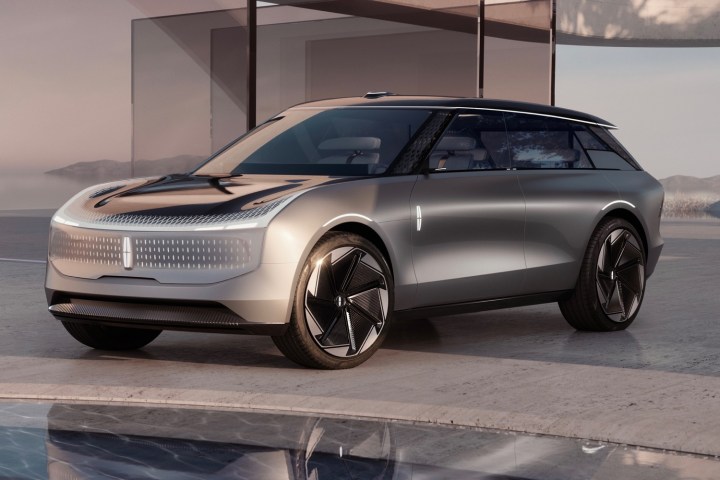Following the lead of parent Ford, Lincoln is getting serious about electric vehicles. The Lincoln Star concept previews a line of EVs the luxury brand plans to launch over the next few years.
As expected, the Star concept is an SUV. Lincoln has been an all-SUV brand since the Continental was discontinued after the 2020 model year. The exterior vaguely follows the profile of the current Lincoln Aviator, with the passenger compartment pushed far to the back. But in place of the Aviator’s blunt front end, the Star has a streamlined prow that’s probably more aerodynamic.
The interior has a lounge-like design, including wraparound rear seats with leg rests. Second-row passengers also get an integrated drink cooler and individual screens. Up front, a dashboard-spanning screen follows the current luxury-car trend. Transparent roof pillars with 3D-printed metal latticework aim to create a feeling of spaciousness across all rows.
Like many EVs, the Star has a front trunk (aka “frunk”) where the engine compartment would be normally. Lincoln also used electrochromic glass that can switch from transparent to opaque, letting light into the cabin while driving or hiding stored items when parked. The rear cargo area also includes a small fold-out couch.
Lincoln didn’t disclose any technical details, but the automaker noted that it has an EV-specific vehicle architecture that will underpin future models and can accommodate rear-wheel-drive or all-wheel-drive drivetrains. Note that Lincoln was previously slated to get a Rivian-based EV, but that vehicle was canceled in 2020.

Those future Lincoln EVs will start arriving soon. The automaker plans to launch three by 2025, and a fourth in 2026. Lincoln expects more than half its global sales volume to be all-electric vehicles by mid-decade. That’s an ambitious plan for an automaker with no EVs in its current lineup (although there are some plug-in hybrids), but Lincoln will be able to leverage parent Ford’s resources to make that happen.
An aggressive electrification strategy is likely also necessary to keep pace with other luxury brands like Audi, BMW, Cadillac, and Mercedes-Benz, all of which have multiple EVs on sale or under development, along with ambitious sales targets of their own.
Editors' Recommendations
- Mercedes G580 electrifies an off-road icon
- 2025 Mercedes-Benz EQS sedan gets new face, bigger battery
- Genesis Neolun concept is an electric SUV inspired by tradition
- Audi Q6 e-tron ushers in the automaker’s next EV phase
- Tesla faces new rival as a tech giant launches its first EV


